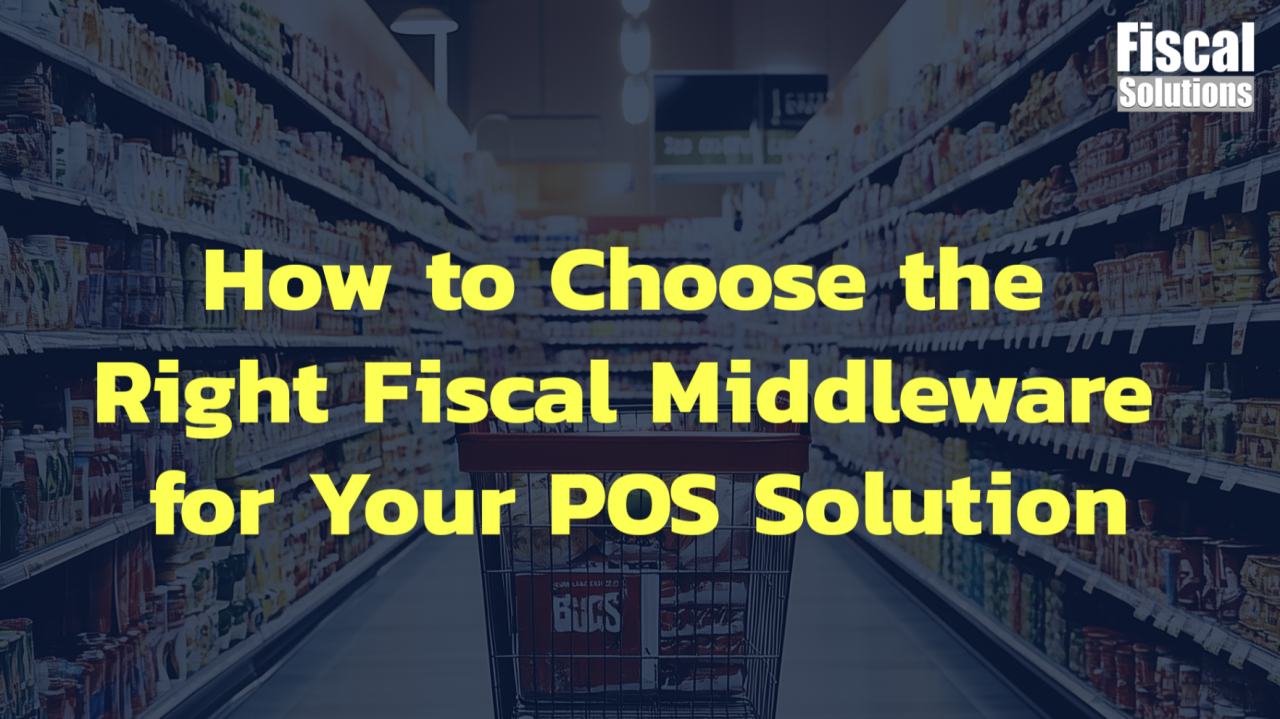
As a POS software vendor, entering or expanding in international retail markets means facing a wide range of fiscalization laws, compliance obligations, and technical constraints. Integrating fiscalization features into your POS solution can quickly become overwhelming, unless you choose the right fiscal middleware partner.
But what does “the right” really mean in this context?
Many vendors assume it’s enough for middleware to simply fulfill the legal requirements.
That’s a big mistake.
Here are six essential aspects you should evaluate when selecting a fiscal middleware solution:
1. It’s Not Just About Legal Compliance – It’s About Making Your Life Easier
Good fiscal middleware does more than implement fiscal laws, it’s built to support your development process.
For example:
🧩 Fiscal Transaction counters, required in many countries, can either be implemented on your side or handled by the middleware.
✅ If your middleware takes care of these details, you don’t need to develop, maintain, or test them in your POS.
That means less work, fewer bugs, and faster time-to-market.
2. Legal + Technical Expertise in One Team
Fiscalization isn’t just a technical challenge, it’s also a legal one. The middleware provider should offer a dedicated consulting team that combines both competencies:
- ⚖️ Legal expertise to interpret complex and fast-changing regulations
- 💻 Technical knowledge to translate those rules into scalable, efficient software features
This combination ensures that your implementation is always accurate, up-to-date, and compliant without draining your internal resources.
3. Native Integration with Your Architecture
If you’re building for the cloud, make sure your middleware is natively designed for cloud environments.
🚫 If the provider adapts an on-premise solution for cloud, you won’t be able to use the advantages of horizontal scaling, native monitoring, or cloud DevOps tools.
✅ Middleware must integrate smoothly with your existing cloud stack and development pipelines to ensure performance and maintainability.
4. Deep Understanding of POS Processes
A middleware provider that doesn’t understand retail POS processes in detail is like a navigator who can’t read the map.
🛒 Fiscalization must be deeply embedded in workflows like refunds, cancellations, discounts, price changes, and loyalty programs.
The provider should optimize the middleware for the real-life behavior of your POS, not just mechanically implement rules.
5. Proven Hardware Knowledge
Even today, around 50% of fiscal countries still use fiscal hardware, such as:
- Fiscal printers
- Signature devices
- Local fiscal memory modules
If your middleware provider doesn’t know how to handle legacy fiscal devices, you’ll be forced to work with different vendors in different countries.
That defeats the point of using a unified middleware and dramatically increases your integration, testing, and support costs.
6. Proactive Updates and Transparent Communication
Yes, it’s the middleware provider’s job to keep their solution compliant, but that’s not enough.
💡 A great partner will:
- Proactively inform you about law changes
- Offer impact analysis for your systems
- Give you transition guides for technical or business process changes
You don’t want “silent” updates that break your workflows or force last-minute changes.
Final Thought
The best fiscal middleware is more than a technical interface, it’s a strategic enabler. It helps you expand into complex fiscal countries without building a fiscal team, without rewriting your POS, and without worrying about ongoing compliance.
If you’re choosing a middleware partner, don’t just ask if it works.
Ask how well it works with you.

